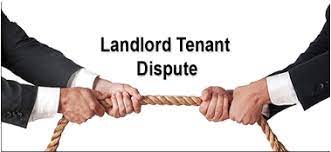
West London Landlords: End Of Tenancy Issues And How To Solve Them.
As a landlord, one of the tensest times in a tenancy comes right at the very end. As you walk through the door to assess the condition of the property, a lump appears in the throat. You wonder what you’re walking into. Horror stories bounce around the internet of tenants that have taken every light bulb in the place – even tenants that have taken the radiators and every floorboard. Although we know these are rare cases, landlords always think the worst at some stage near the end of a tenancy.
There are several ways of dealing with this. The Tenancy Deposit Scheme was set up years back to protect landlords and tenants in the event of a dispute. The security deposit (usually one month’s rent, sometimes more) is left there in case the landlord needs to put things right. But the whole journey begins much earlier. Let’s take a look…
Getting It Right At The Start
The point in time when you can make the biggest impact on the ‘end of tenancy nerves’ is when the tenant moves in. This is when a thorough, documented and signed inventory and condition report covers everyone. If you complete or commission a comprehensive report then you are in a great place. This should include –
• An inventory of all items contained in the property – that should still be there when the tenancy ends
• A report of the condition of the property – noting any damage
• Photographs that confirm all of the facts above
This should then be signed by both the landlord and the tenant to ensure that everyone is covered. In addition, full and proper referencing of tenants can go a long way to ensuring you have people in there who will respect it. It isn’t a cast-iron guarantee but will help give you peace of mind. This isn’t a time to cut corners and scrimp on costs. It’s time to get it right. If you have any questions about these as a landlord in West London, then please drop us a line. We’re here to help you get the most from your properties.
Building It Into Your Business
Now we all know that wear and tear happen in any property over a period of time. And this can be really difficult to quantify in terms of how much wear and tear a particular tenant has contributed to breakage or damage. This is when you need to look at other factors, such as –
• How many occupants and how long they have lived there
• The change in condition from the start to the end of the tenancy
Considering these and other factors will allow you to make a judgment on how much of a tenant’s deposit to ask for at the end of the term. Ultimately, in the event of a dispute, the decision will reside with the scheme.
Having a rented property is very much like running a business. And, as in any other business, you should factor in that you need to spend money on the property in the long run.
Professional cleaning between tenancies, upgrades and repairs are all part of being a landlord in West London – or anywhere else for that matter. If you build this contingency into your business plans then you’re in a much better place.
How To Make A Claim For A Tenant’s Deposit
The actual technical side of things can be cleared up with a quick call to your provider – or a chat with your managing agent. Landlords in West London can benefit from our exceptional service in these matters.
But in terms of getting a claim right, there are some key factors to remember –
• Only make a claim if you can back it up with evidence. The condition report and inventory at the start of a tenancy is a great place to start.
• Reference your inventory thoroughly at the time the tenant leaves to ensure your claim is accurate.
• Ensure your tenancy agreement includes a clause that obliges the tenant to seek permission for any alterations or additions. This way you can keep track of your property.
• Be fair in all your dealings with tenants. They may not be liable for all the cost of a repair but a contribution towards a repair might be the fairest outcome.
• Build some contingency into your business plan to ensure that you aren’t left with repairs that you can’t afford.
Again, if you have any questions as a landlord in West London or the surrounding areas then please get in touch and find out how we can help protect your property.
Written by John Rigg
Source London Estates






